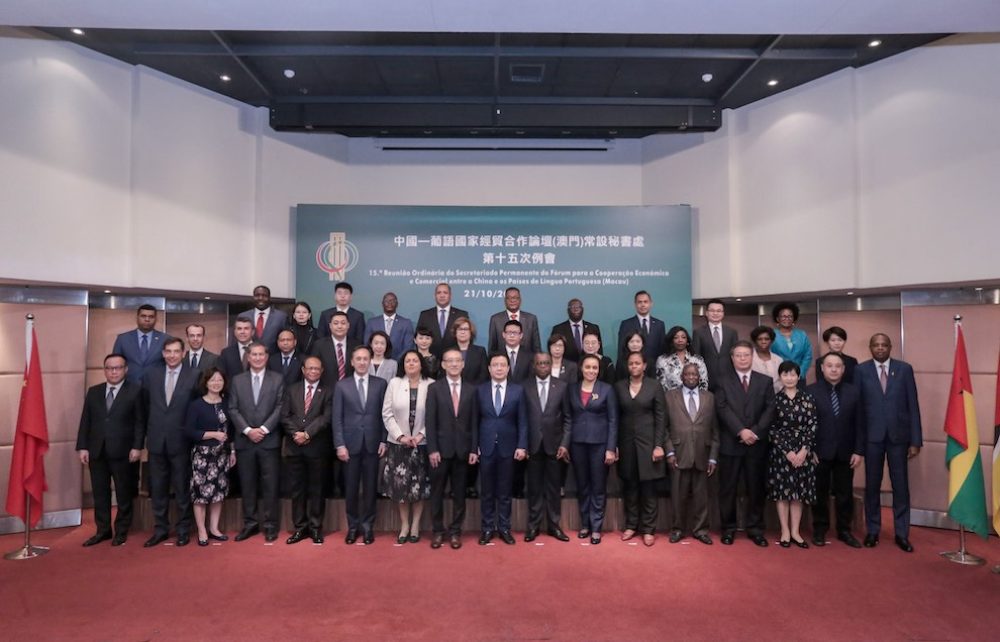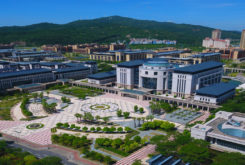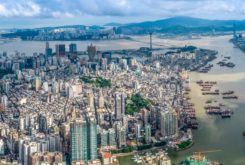Seventeen years after the creation of Macao Forum by the Ministry of Commerce of China (MOFCOM), a new assessment by the Chinese Academy of Social Sciences is a good opportunity to chart a better path forward, helping the Forum achieve its potential as an effective business hub. With Portuguese-Speaking Countries facing pandemic-fueled economic crisis, and China leading the global recovery, the Forum is perhaps more necessary today than its has ever been in the past.
It is time to rethink the activity of this institution, which annually spends around USD 30 million of Macao public funds. This is exactly what the Chinese Academy of Social Sciences did with its newly released report, which assesses Macao Forum’s first fifteen years of activity and points out ways for what it should do to become more relevant in the relations between the China and the Portuguese speaking–countries. The 400 page document says what everyone have been saying, both directly and bluntly.
The rotation of Chinese officials and delegates from Portuguese speaking-countries occurs periodically. Missions are carried out with delegates from Portuguese-speaking countries to the interior of China without great results or impact. Forum Macao missions have been organized to the Portuguese-speaking countries to make the organization better known, but the agendas are too official and therefore without the desired impact. Administrative bureaucracy engulfs networks that should be operative after initiatives to train civil servants from Portuguese-speaking countries.
Every three years, Macao hosts a ministerial meeting with high ranking officials from China and the eight countries that discuss and approve action plans that are difficult to implement. So what should Macao Forum do to be in fact an important instrument in China’s commercial and business link with Portuguese-speaking countries?
The official report points out many of the paths suggested over the years but never materialized, either because the Forum is not considered a priority in China’s relations with the Portuguese speaking-countries or because the countries participating in the Forum have not yet understood that in addition to bilateral relations with China, they can have contacts at the multilateral level, through the Forum.
It is interesting to see that the report by the Chinese Academy of Social Sciences clearly states that the Macau Forum should further strengthen the overall planning, improve the working mechanisms, increase its dissemination and intensify Macau’s competitiveness as a platform for trade and cooperation between China and these countries.
The report also points out that the countries participating in the Forum, in addition to following the guidelines of the Belt and Road initiative, should take advantage of the existing opportunities in the Guangdong-Hong Kong-Macau Greater Bay Area and recalls that micro, small and medium-sized Portuguese speaking countries and China should be the institution’s priority.
The strengthening of industrial cooperation in the areas of agriculture, manufacturing and the services with a special focus on the areas of protection of maritime resources must also be priorities to be achieved by the Forum, whose member countries can take advantage of existing funds like the Silk Road Fund. Another possibilty is the China-Portuguese Speaking Countries Cooperation and Development Fund, which, however, needs to be rethought in order to provide better responses, such as through investment in Public Private Partnerships (PPP). Here too, the report only follows the opinion expressed over the years that China should provide free assistance, interest-free credits and preferential credit to Portuguese-speaking countries in Africa and Asia.
To be addressed by the Forum is also the lack of knowledge of what is the role of the institution in Portuguese-speaking countries and in China, promoting its accomplishments on traditional and social media.
Yearly specific missions to Portuguese-speaking countries or to the interior of China might not be as effective as permanent structures for contacts, with qualified professionals.
In its 400 pages, the report underlines the importance of cultural contacts, language training, financial aspects, the role of Macao in the Greater Bay Area and in the development of a Chinese Traditional Medicine sector.
It is worth considering that China’s trade with Brazil is 75% of its total trade with the Portuguese-Speaking Countries and that 18% was done with Angola – in both cases, bypassing Macao.
Portugal’s ambassador to Beijing José Augusto Duarte, speaking to Radio Macau said last week that the Forum currently lacks concrete results. His words echo those of the former deputy secretary general, Rodrigo Brum, that said that, despite the Forum’s accomplishments, challenges remain to coordinate member states and improve results.
The recent Macao Forum report by the Academy of Social Sciences is a detailed map to chart a more successful path, with clear guidance. A new secretary-general of the Forum is due to arrive soon to complete the structure of the institution, from 2021 onwards, as the global economy recovers from the pandemic.
Well into its second decade, the Forum can start a new phase of its history – more pragmatic and more professional. Above all, with a more dynamic attitude from all the nine countries represented in the institution.
Gonçalo César de Sá has been a journalist since 1973. Born in Mozambique, he studied in Johannesburg, worked in the capital radio station and later in the Ministry of Information during the transition period before independence in 1975. He later worked for companies like the BBC, AFP, RTHK, O Jornal and Lusa Portuguese News Agency, as a director for 30 years. Since 2009, Gonçalo has been director of Macaulink Media Group. He is an expert in the relations between China and the Portuguese-speaking countries.




